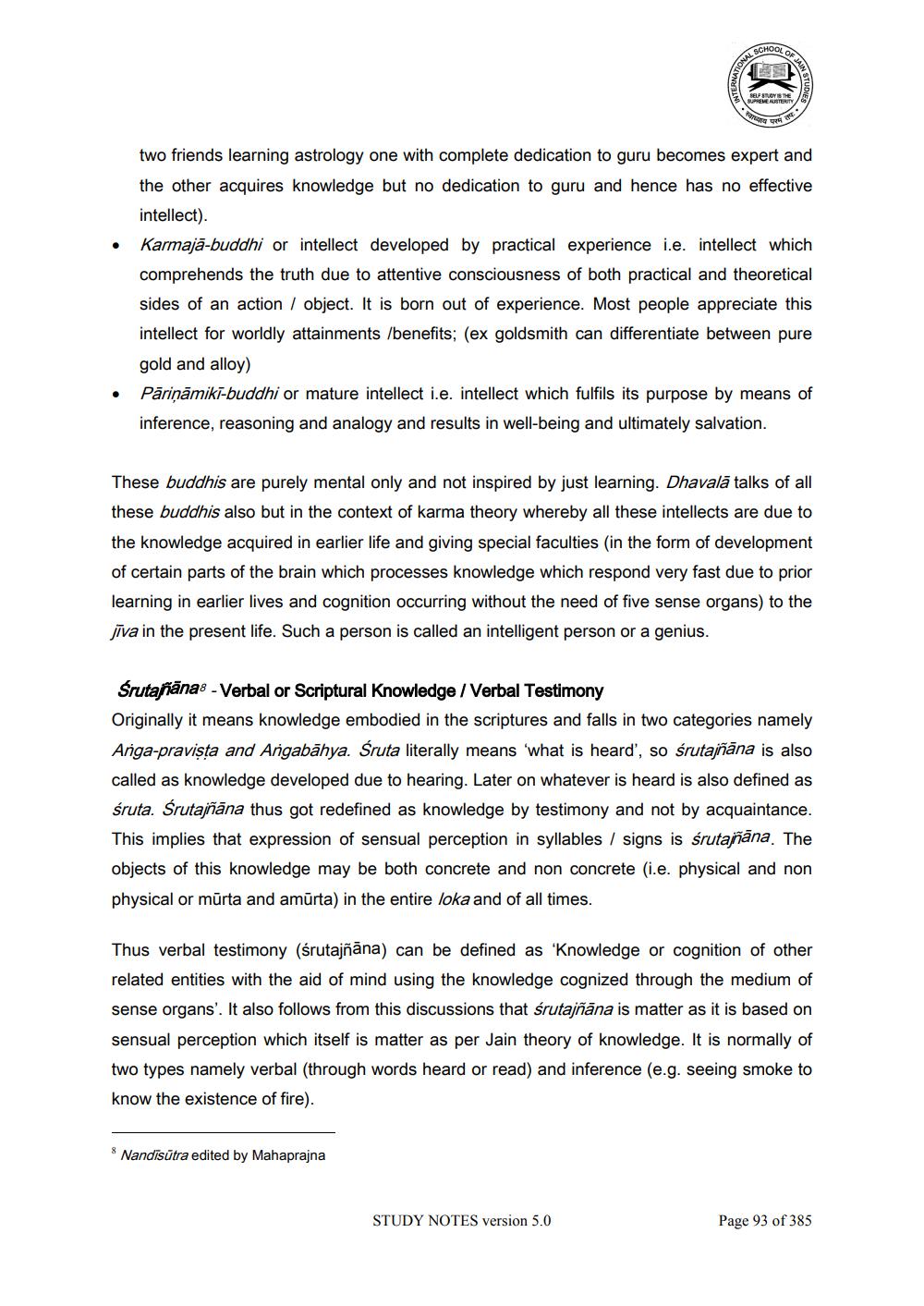________________
two friends learning astrology one with complete dedication to guru becomes expert and the other acquires knowledge but no dedication to guru and hence has no effective intellect). Karmajā-buddhi or intellect developed by practical experience i.e. intellect which comprehends the truth due to attentive consciousness of both practical and theoretical sides of an action / object. It is born out of experience. Most people appreciate this intellect for worldly attainments /benefits; (ex goldsmith can differentiate between pure gold and alloy) Pāriņāmiki-buddhi or mature intellect i.e. intellect which fulfils its purpose by means of inference, reasoning and analogy and results in well-being and ultimately salvation.
These buddhis are purely mental only and not inspired by just learning. Dhavalā talks of all these buddhis also but in the context of karma theory whereby all these intellects are due to the knowledge acquired in earlier life and giving special faculties (in the form of development of certain parts of the brain which processes knowledge which respond very fast due to prior learning in earlier lives and cognition occurring without the need of five sense organs) to the jīva in the present life. Such a person is called an intelligent person or a genius.
Śrutapānas - Verbal or Scriptural Knowledge / Verbal Testimony Originally it means knowledge embodied in the scriptures and falls in two categories namely Anga-pravista and Angabāhya. Śruta literally means 'what is heard', so śrutajñāna is also called as knowledge developed due to hearing. Later on whatever is heard is also defined as śruta. Śrutajñāna thus got redefined as knowledge by testimony and not by acquaintance. This implies that expression of sensual perception in syllables / signs is śrutajñāna. The objects of this knowledge may be both concrete and non concrete (i.e. physical and non physical or mūrta and amūrta) in the entire loka and of all times.
Thus verbal testimony (śrutajñāna) can be defined as 'Knowledge or cognition of other related entities with the aid of mind using the knowledge cognized through the medium of sense organs'. It also follows from this discussions that śrutajñāna is matter as it is based on sensual perception which itself is matter as per Jain theory of knowledge. It is normally of two types namely verbal (through words heard or read) and inference (e.g. seeing smoke to know the existence of fire).
& Nandisutra edited by Mahaprajna
STUDY NOTES version 5.0
Page 93 of 385




